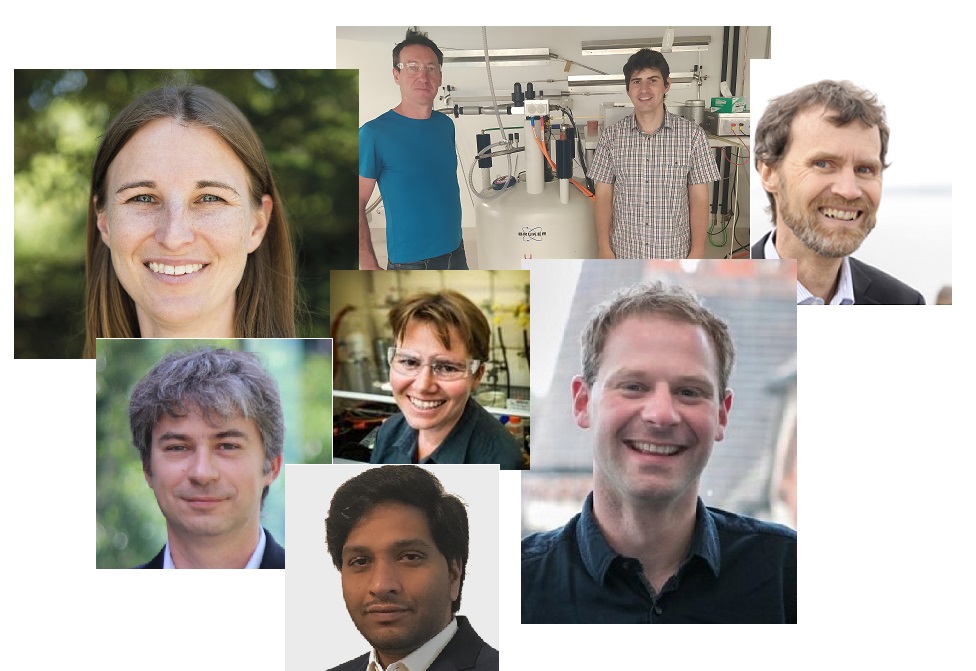Congratulations to all ARC Discovery Project 2021 recipients

Congratulations to Dr. Lara Malins
Lara received the DP award independently for the ANU. The project will focus on " Harnessing molecular strain for drug discovery and bioconjugation. Peptides and proteins are increasingly important therapies for the treatment of disease. Nevertheless, the synthesis and optimisation of these high-value compounds still relies primarily on technologies developed decades ago. There is a desperate need for modern strategies to unlock the full potential of peptides and proteins for diverse applications in drug discovery. This interdisciplinary research aims to develop new tools for the construction and modification of peptides and proteins by harnessing the energy in a unique class of strained molecules. A focus on peptide-based inhibitors of the proteasome, a critical target for modern cancer treatments, should provide future health and economic benefits for the Australian community. "
Congratulations to Dr. Jamie Hicks
Jamie received the DP award independently for the ANU. The project will focus on " Earth Abundant Metal Complexes for Nitrogen Activation. This project aims to develop a range of complexes based around earth abundant metals that are capable of activating nitrogen (N2) at ambient pressure and temperature. The project expects to generate new knowledge in the area of organometallic chemistry, specifically with regards to molecular metal-metal bonding and subsequent reactivity towards the activation of nitrogen. The activation of atmospheric nitrogen is performed on a multi-million tonne scale each year and is key to a number of industrial processes. As such, investigations into new and improved catalysts for this process would potentially bring huge financial benefits to industry, as well as benefiting the environment by reducing energy demand and associated climate change. "
Congratulations to Assoc. Prof Alexey Glushenkov & Dr. Thrinath Reddy Ramireddy
Alexey & Thinath received the DP award with Dr Mohammad Saadatfar, Dr Tobias Placke, Professor Yury Gogotsi for the ANU. The project will focus on " Dual-ion electrochemical systems. The project aims to develop dual-ion electrochemical systems. In contrast to conventional single-ion rechargeable cells, the charge storage process in the cathodes of these devices is facilitated by a second, negative ion. Dual-ion systems represent robust alternatives to current lithium-ion batteries and lithium-ion capacitors, addressing their sustainability and energy density limitations. The project’s outcomes are in the form of new sustainable energy storage technologies with attractive energy and power densities for a wide range of applications. This should provide a significant benefit to society, the economy and the environment in enabling an easier transition to clean energy and ensuring energy security in Australia."
Congratulations to Professor Thomas Huber; Associate Professor Nicholas Cox & Professor Gottfried Otting
Thomas, Nick and Gottried received the DP award with Associate Professor Jeffrey Harmer, Professor Martin Högbom for the ANU. The project will focus on " Methods for Protein Structure Analysis by Electron Paramagnetic Resonance. This highly interdisciplinary project aims to establish new tools to analyse the structure and motions of proteins that are otherwise difficult to study. A combination of advanced biochemistry, modern magnetic spectroscopy methods, and high-performance computing techniques will be applied to study proteins at physiological concentrations and in complex environments. New techniques will be developed and tested on proteins of high biochemical or biomedical importance, and the approach will be applied to established drug targets."
Congratulations to Prof. Michelle Coote
Michelle received the DP award with Dr Alexander Bissember and Professor Jianwei Sun, for the University of Tasmania. The project will focus on "Switchable and stereocontrolled photoredox catalysis. This project aims to develop new catalytic synthetic reactions for the rapid and more direct functionalisation of organic compounds under mild conditions with the use of visible light. An integrated experimental and computational approach will be used to design potent visible-light photocatalysts that retain the advantages of standard photoredox catalysis but with the added ability to intercept and, thus control, reactive intermediates in situ. This will enable the control of stereochemistry in photoredox reactions – not possible with standard catalysts - and establish other useful synthetic transformations. These strategies will make it easier to prepare valuable classes of organic molecules – efficiently, safely, and cost-effectively. "
